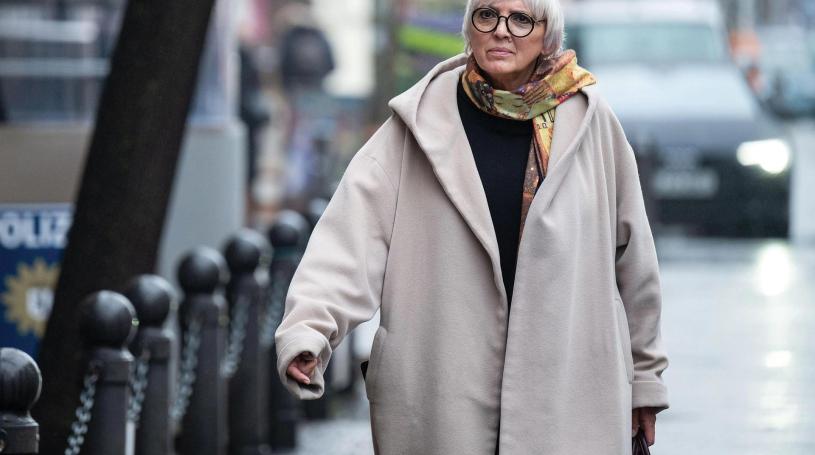Decolonising museums, embracing 'Green Culture' and boosting arts funding: Germany’s new culture minister reveals plans
Germany’s new culture minister, Claudia Roth, has taken office pledging to continue her predecessor’s work in decolonising museums, to set up a central “green culture” desk, to boost funding for the arts and to rethink both the Humboldt Forum and a planned new 20th-century art museum in Berlin.
The first Green Party culture minister, Roth, 66, has focused on human rights in her lengthy political career. But before she entered politics she worked in theatre and was once the manager of a radical left-wing rock band called Ton Steine Scherben.
In an interview with Deutschlandfunk radio, she said “Two hearts have always beat in my breast. One is the love of art and culture; that is where I come from.” The other, she said, “is a passion for democracy”.
Traditionally, culture in Germany is the preserve of the 16 states, and the culture ministry is integrated into the chancellery. The post is still not a cabinet position and was only created in 1998. But Roth’s predecessor, Monika Grütters, significantly raised its profile and oversaw a dramatic increase in the federal culture budget. For 2022, the government has approved €2.1bn, a 73% increase from 2013, the year Grütters took office.
Roth has a hard act to follow, but she brings both a network and clout: she has held several senior political posts, including the leadership of the Green Party and, most recently, the vice president of the lower house of parliament.
Arts funding is top of agenda
Roth has already made clear that securing increased funding for the arts will be a top priority—particularly given the blow institutions have suffered in successive lockdowns. The coalition agreement, signed by the Social Democrats, Greens and Free Democrats, includes a commitment to extend Grütters’ “Neustart Kultur” (new start for culture) pandemic recovery programme. So far, Germany has committed €2.5bn in addition to the regular federal arts budget.
In an interview in the weekly newspaper Die Zeit, Roth said it is primarily “the alternative scene, the clubs, the record and comic shops whose existence is threatened by the pandemic. We have to stop that.” But her attention is also focused on some larger institutions. The Humboldt Forum, which opened last year, has become a lightning rod for the discussion about colonial-era museum collections. “For me it is a matter close to my heart that we should think on all levels about how we can decolonise our thinking,” Roth said in the Zeit interview. “It will be essential to discuss how we can reform the Humboldt Forum.”
Under the previous government, Germany has signed a memorandum of understanding with Nigeria on the transfer of ownership of more than 1,100 Benin bronzes looted by the British and now in German museum collections. It will be Roth’s job to implement the accord, with the first repatriations expected this year. She has already convened a meeting in January of all German museums with Benin bronzes—so far, smaller museums with just a few items have not been included in the discussion.
But Roth says she is also committed to stoking a wider social debate about decolonisation. “The discussion about decolonisation has not yet taken place in the broader society,” she told Die Zeit. “There is an assumption that this is a problem for others, that we Germans were not that bad.”
Another of Grütters’s projects may also be in Roth’s firing line. Berlin’s planned Museum of the 20th Century, designed by Herzog & de Meuron, has been widely attacked as too expensive—media reports have estimated the final costs as high as €600m—and too energy-intensive.
According to Roth, “a few issues were missed” in planning the museum. “It cannot be the case that we build new museums without giving sustainability criteria a leading role,” she said. The new “green culture desk” is intended to serve as a central coordination point on sustainability issues for arts venues from museums to music production studios, she said.
Restitution overhaul
Other unfinished tasks from Grutters’s time in office include a planned review of the controversial Cultural Property Protection Law, passed in 2016, and the restructuring of Berlin’s Prussian Cultural Heritage Foundation, Germany’s largest arts employer. In 2020, a government-commissioned report found that the foundation, with 2,000 employees, is “structurally overwhelmed” with “a multi-layered hierarchy and unclear decision-making procedures that mask responsibilities and make processes drawn-out and opaque.”
The new coalition has also pledged to improve the framework for restituting Nazi-looted art by eliminating statutes of limitations, creating a central court to handle cases and strengthening the advisory commission that deals with claims in public collections. The pledge has been hailed as a good sign for claimants to art lost due to Nazi persecution. Eliminating the statutes of limitations that currently block claims in court, in particular, “could be a real game-changer,” says Ulf Bischof, a Berlin-based art lawyer.

